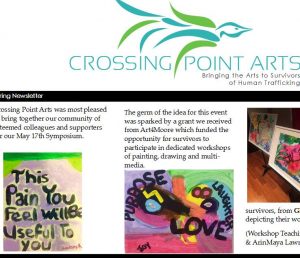Podcast: Play in new window | Download
U.S. Employees Agree To Be Microchipped
In 2003, 500 of the largest corporations planned to quietly replace universal product codes or barcodes with tiny Radio Frequency IDentifcation (RFID) microchips, creating the Electronic Product Code or EPC. RFID is a technology that tracks items silently and invisibly by radio waves. Over the years, we’ve reported about how RFID chips embedded in consumer products might be used to track people through the things they wear and carry since radio waves travel right through solid objects and can communicate with reading devices that can be hidden almost anywhere.
Corporations have already started embedding RFID microchips into consumer products for many reasons including shipping, inventory and marketing. Some companies have also been very interested in embedding RFID microchips into human flesh.
Years ago, Applied Digital Solutions tried to sell its “Verichip” human implant as a way to store medical information in people–and even to track senior citizens and corpses. Concerned citizens decried the privacy and security issues, forcing name changes and even the selling off of its human chipping business.
Microchip companies with new names and marketing angles are at it again. Recently, fifty employees with the snack kiosk company Three Square Market in Wisconsin agreed to have a microchip embedded into their flesh.
Guest – Liz McIntyre, a consumer privacy expert who is coauthor of a series of books about the societal implications of microchip tracking technology, including Spychips: How Major Corporations and Government Plan to Track your Every Purchase and Watch Your Every Move. She also promotes privacy as a consultant with the search engine StartPage.com
—-
PTSD Therapy For Human Trafficking Survivors
Nearly all survivors of human trafficking are affected by post traumatic stress syndrome and have difficulty assimilating back into the society. Most have managed to silently cope with the emotional and physical trauma of their past. The New York-based organization Crossing Point Arts was created help survivors heal through the arts, including singing, creative art and poetry.
The group provides free art workshops supervised by Creative Arts Therapists. The strategy is based on providing learn long-term coping mechanisms and better manage their PTSD symptoms.
Crossing Point Arts has reached nearly 2,000 survivors in art workshops. The workshops are held on the premises of local anti-trafficking agencies as part of a comprehensive program for survivors, which includes housing, legal and medical assistance, traditional therapy, educational guidance and a range of emotional support.
Guest – Anne Pollack is the Crossing Point Arts founder and executive director. Anne is a musician, visual artist, writer, student of dance and an activist. YourFluteWorks
—————————————————



